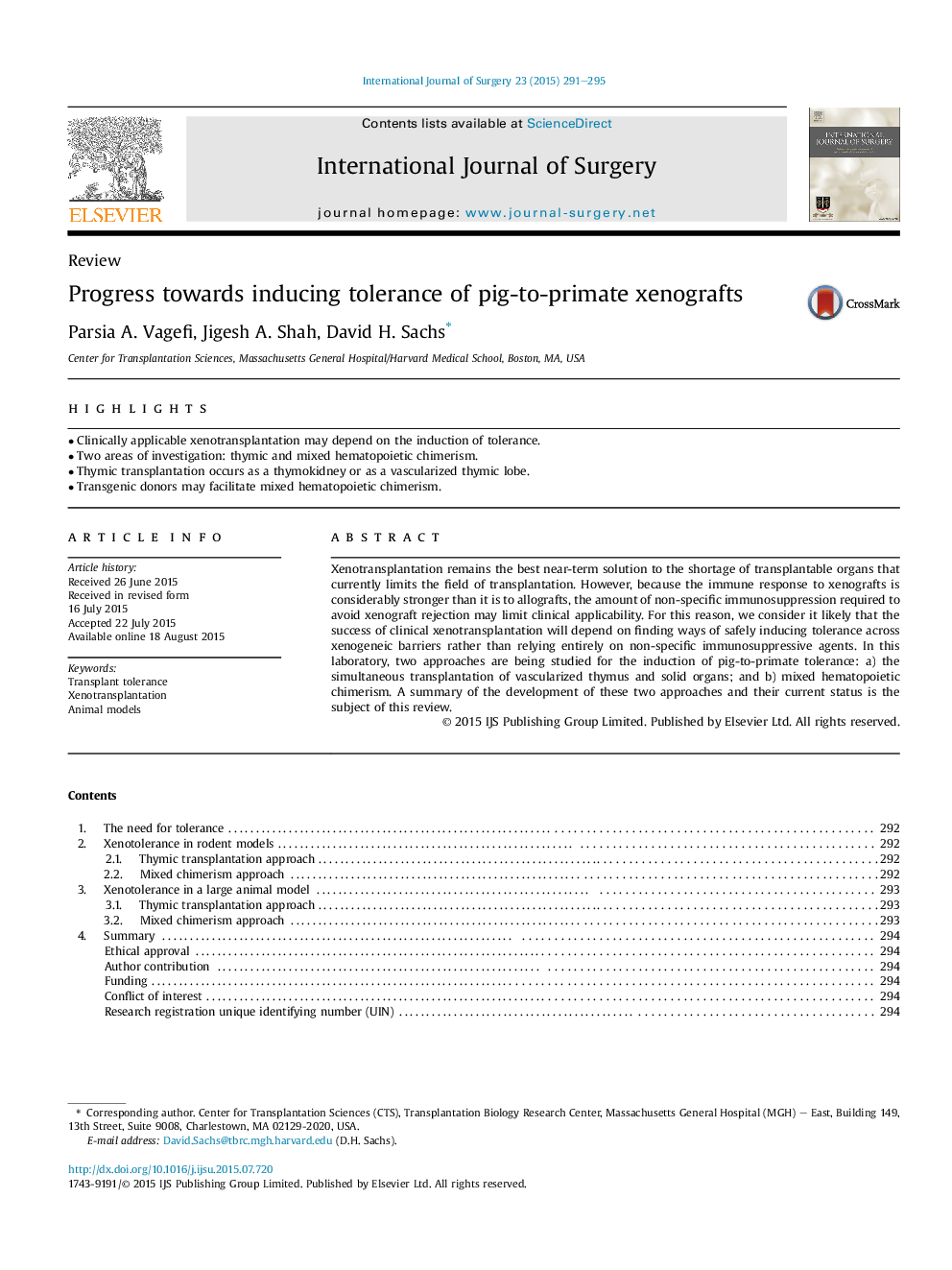| Article ID | Journal | Published Year | Pages | File Type |
|---|---|---|---|---|
| 4285728 | International Journal of Surgery | 2015 | 5 Pages |
•Clinically applicable xenotransplantation may depend on the induction of tolerance.•Two areas of investigation: thymic and mixed hematopoietic chimerism.•Thymic transplantation occurs as a thymokidney or as a vascularized thymic lobe.•Transgenic donors may facilitate mixed hematopoietic chimerism.
Xenotransplantation remains the best near-term solution to the shortage of transplantable organs that currently limits the field of transplantation. However, because the immune response to xenografts is considerably stronger than it is to allografts, the amount of non-specific immunosuppression required to avoid xenograft rejection may limit clinical applicability. For this reason, we consider it likely that the success of clinical xenotransplantation will depend on finding ways of safely inducing tolerance across xenogeneic barriers rather than relying entirely on non-specific immunosuppressive agents. In this laboratory, two approaches are being studied for the induction of pig-to-primate tolerance: a) the simultaneous transplantation of vascularized thymus and solid organs; and b) mixed hematopoietic chimerism. A summary of the development of these two approaches and their current status is the subject of this review.
